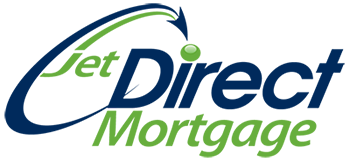What is a Reverse Mortgage?
A reverse mortgage is a type of loan in which a borrower with a sizable home equity is granted a loan based on the value of the borrower’s property. The amount is loan either as a lump sum or in terms of monthly installments. Unlike other mortgages, a reverse mortgage does not require the borrower to make any monthly payments towards the repayment of the loan. Instead, the loan amount is collected in full when the borrower leaves the possession of the home either because he or she is selling it or because the borrower has passed away.
The Federal Government defines certain guidelines for reverse mortgages to ensure that the loan amount granted to the borrower does not become greater than the value of the property.
Ready to Start the Reverse Mortgage Process?
What are the Features of a Reverse Mortgage*?
- The 60 Percent Rule
In reverse mortgages, a lender sets restrictions on the amount of money the borrower has access to during the initial 12 months after the loan has been granted. Once the 12-month mark has been reached, the borrower is allowed to access the rest of the loan amount he or she is entitled to. - The Financial Assessment
In order to make sure that the borrower is fully capable of managing the expenses like property taxes and insurance during the course of the loan period, the lenders will first conduct a thorough financial assessment of the borrower before approving the loan. The Federal government has set certain standards which a borrower must fulfill in order to be eligible for receiving a reverse mortgage. - The Repayment of the Loan
Technically, the loan amount is paid back to the lender once the borrower passes away or no longer resides in the home for a period of at least 12 months or more. The loan balance will be equal to the amount of monies borrower, plus interest and FHA insurance over the time that the loan has been outstanding. In rare cases, the value of the property may go down due to a variety of factors in which case the loan balance will exceed the value of the home. In this case, the difference the FHA insurance will make up any shortfall. Neither the borrowers nor any heirs are ever liable for the difference.
What are the Eligibility Criteria for a Reverse Mortgage?
- The Age of the Youngest Borrower on the Loan
A HECM reverse mortgage is granted only when the age of the youngest borrower on the loan is 62 years old. - The Value of the Property to be Kept as Collateral
In order to avoid risks for the lender, the property that is being used as collateral must have considerable equity and its value should be greater than or equal to the loan amount.
Even if the borrower is 62 years, they are not eligible for a reverse mortgage unless the home equity meets the lender’s requirements. - The Existing Mortgages
It is important to assess how financially stable the borrower is before granting the loan. An applicant with a high balance on existing mortgages is less likely to be granted a reverse mortgage since the borrower is a financial risk.
If you would like to know more about reverse mortgages, do not hesitate to contact us.
*Borrower is still responsible to pay their taxes and insurance and maintain their home in good condition.
